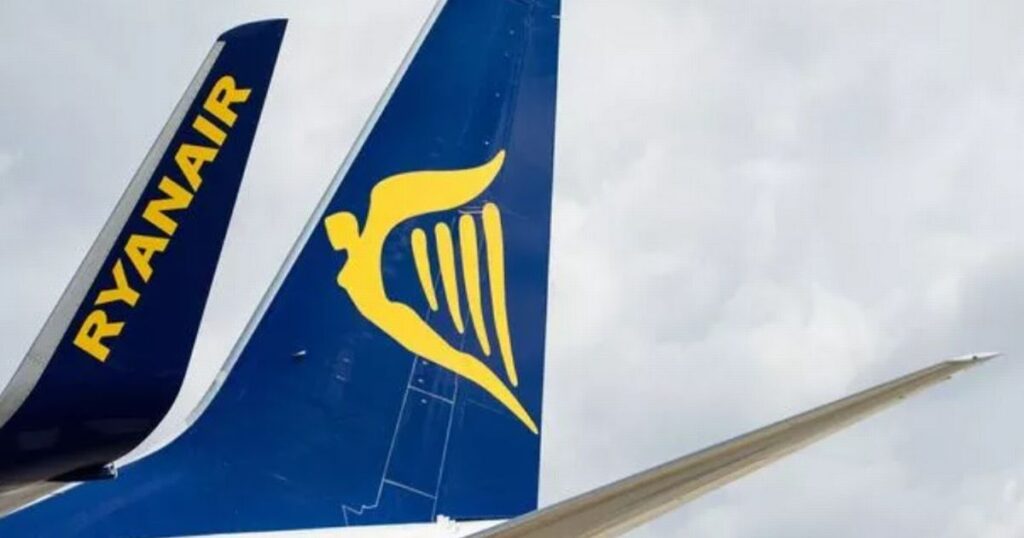Ryanair CEO, Michael O’Leary, has once again called for the dismissal of Martin Rolfe, the head of the UK’s National Air Traffic Service (NATs).
This appeal follows a series of significant disruptions at major UK airports, including Heathrow and Gatwick, that have impacted thousands of passengers.
Recurrent Flight Disruptions
Thousands of passengers faced cancellations at Heathrow and Gatwick Airports, reportedly due to adverse weather conditions and staffing shortages at the National Air Traffic Service (NATs). These disruptions have severely impacted major carriers such as British Airways, Wizz Air, and EasyJet.
Ryanair’s Michael O’Leary has been vocal about these disruptions, describing the situation as a ‘long line of cock ups’ by UK NATs. He has consistently demanded the resignation of NATs boss, Martin Rolfe, emphasising that ‘airlines and passengers deserve better.’
Call for Leadership Change
O’Leary has urged the new Transport Minister, Louise Haigh, to take decisive action by removing Martin Rolfe if he does not resign voluntarily. His criticism of the NATs leadership continues to grow as disruptions persist, affecting both the airline industry and passengers.
The NATs, a public-private partnership responsible for managing UK airspace, has been under scrutiny following these repeated service failures. Concerns about its capability to effectively manage air traffic have been mounting.
Financial and Reputational Impact
Despite the disruptions, shares in EasyJet and Wizz Air experienced increases, which left analysts puzzled. ‘Perhaps the market hasn’t cottoned on to the likely setback to earnings,’ commented Russ Mould, investment director at AJ Bell.
The constant disruption has not only caused frustration among airlines but has also damaged the reputation and financial stability of numerous carriers. The £1.3m salary drawn by NATs’ head Martin Rolfe in 2023 has exacerbated criticism amidst growing challenges.
Historical Issues with NATs
The most recent disruptions add to long-standing issues with NATs, including an unprecedented IT failure last August that caused widespread chaos. These incidents have triggered regulatory scrutiny and prompted further questions about NATs’ fitness for purpose.
Airlines continue to question the competence of the current NATs leadership. The situation remains a major concern for the aviation industry, given the strategic importance of effective air traffic management.
Industry Response
The airline industry has shown unified frustration over the recurring service disruptions caused by NATs. The financial and operational impact on carriers like Ryanair, British Airways, and EasyJet has been significant, affecting their operational efficiency and customer satisfaction.
Airlines are collectively urging for management overhaul at NATs, seeking leadership that can ensure reliable and effective management of UK airspace. There is a clear call for reforms to prevent future disruptions and restore confidence in national air traffic services.
NATs’ performance directly affects the entire travel experience for passengers and the operational planning for airlines, highlighting the critical need for management reforms.
Expectations from the New Leadership
With the appointment of the new Transport Minister, Louise Haigh, expectations for rigorous oversight and significant improvements within NATs are high. The aviation industry seeks immediate and effective changes to address the persistent issues.
Michael O’Leary’s confident assertions reflect the broader sentiment within the industry. There is an urgent call for a competent leadership that can guarantee seamless air traffic service, thereby safeguarding the interests of both airlines and passengers.
Conclusion
Michael O’Leary’s call for the removal of Martin Rolfe underscores the ongoing crisis within the UK’s National Air Traffic Service (NATs).
Effective leadership and strategic reforms are essential to restoring trust and efficiency in UK air traffic management.
Michael O’Leary’s persistent demands reflect a deeper crisis within NATs, highlighting an urgent need for competent leadership in air traffic management.
The aviation industry remains united in its call for reform, underscoring the necessity of reliable and efficient services for airlines and passengers alike. Immediate action is crucial for resolving these systemic issues and restoring confidence in the national air traffic service.


